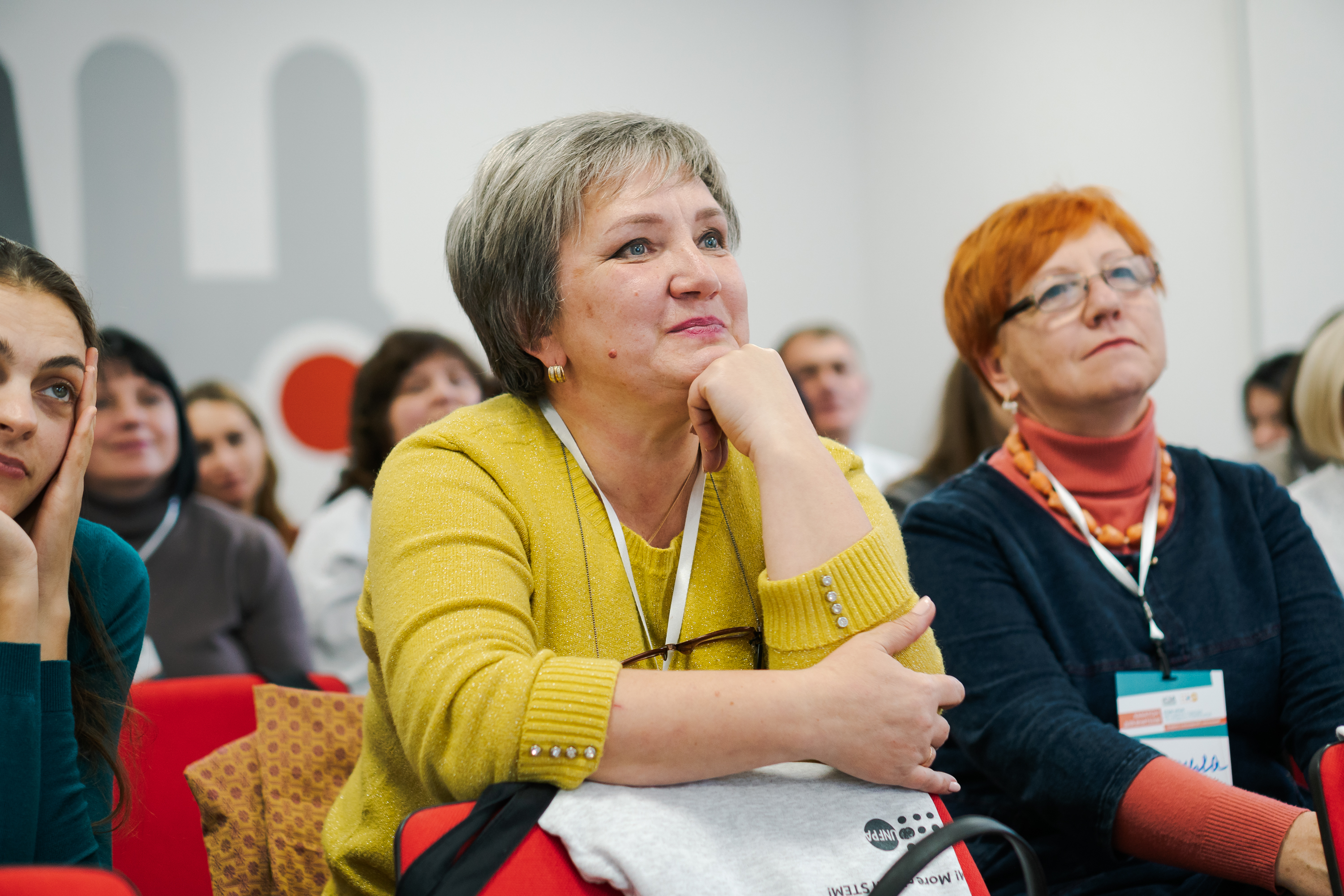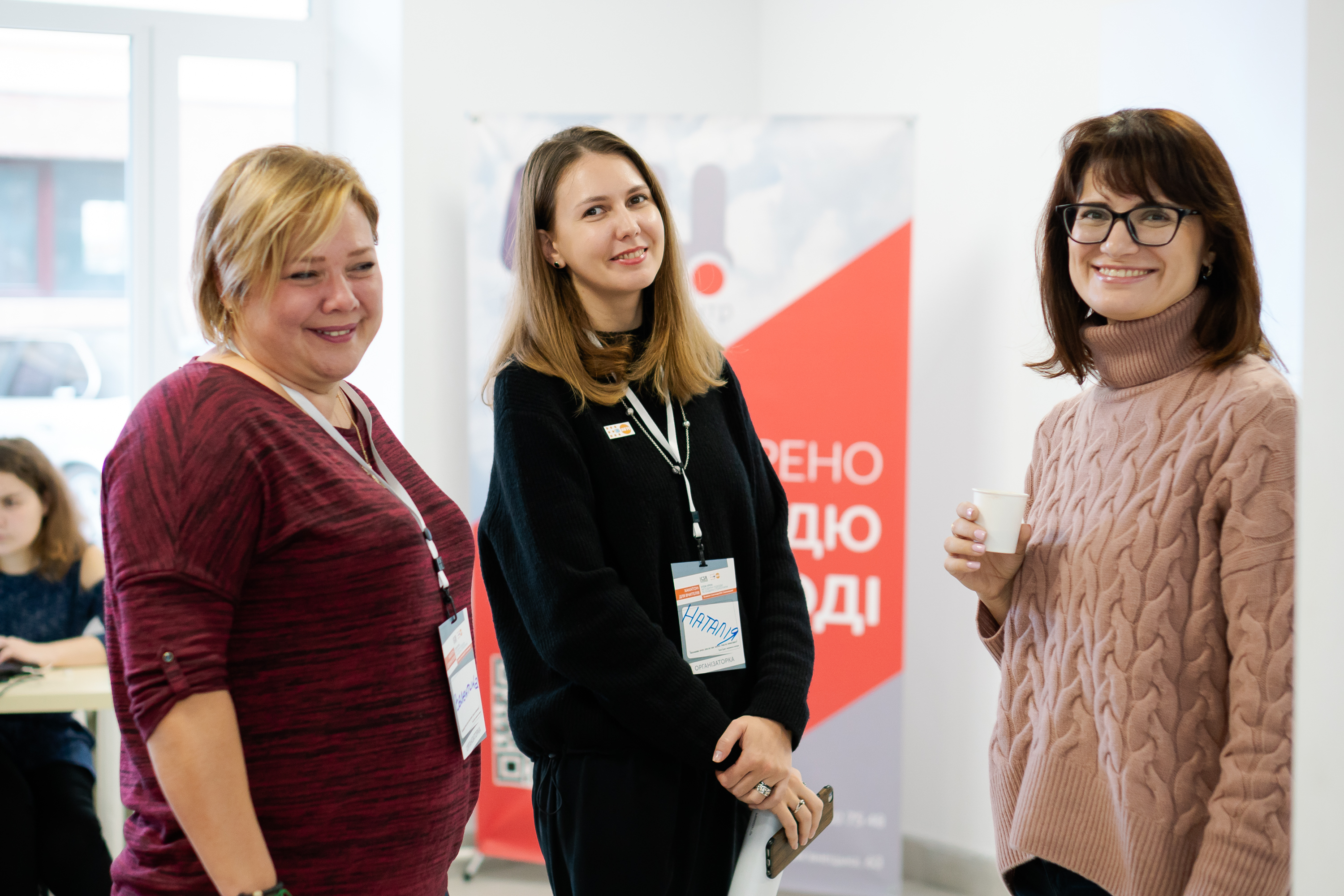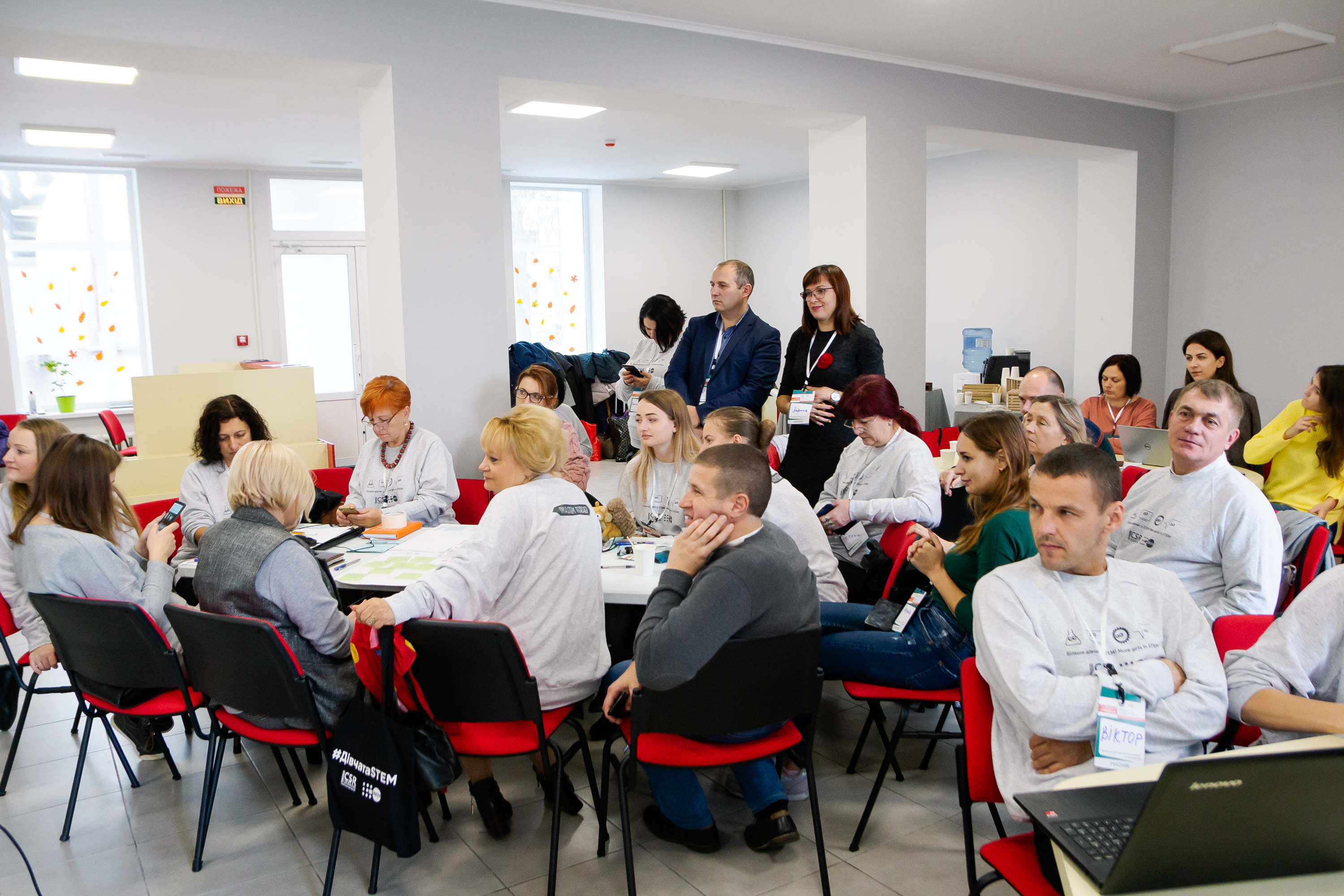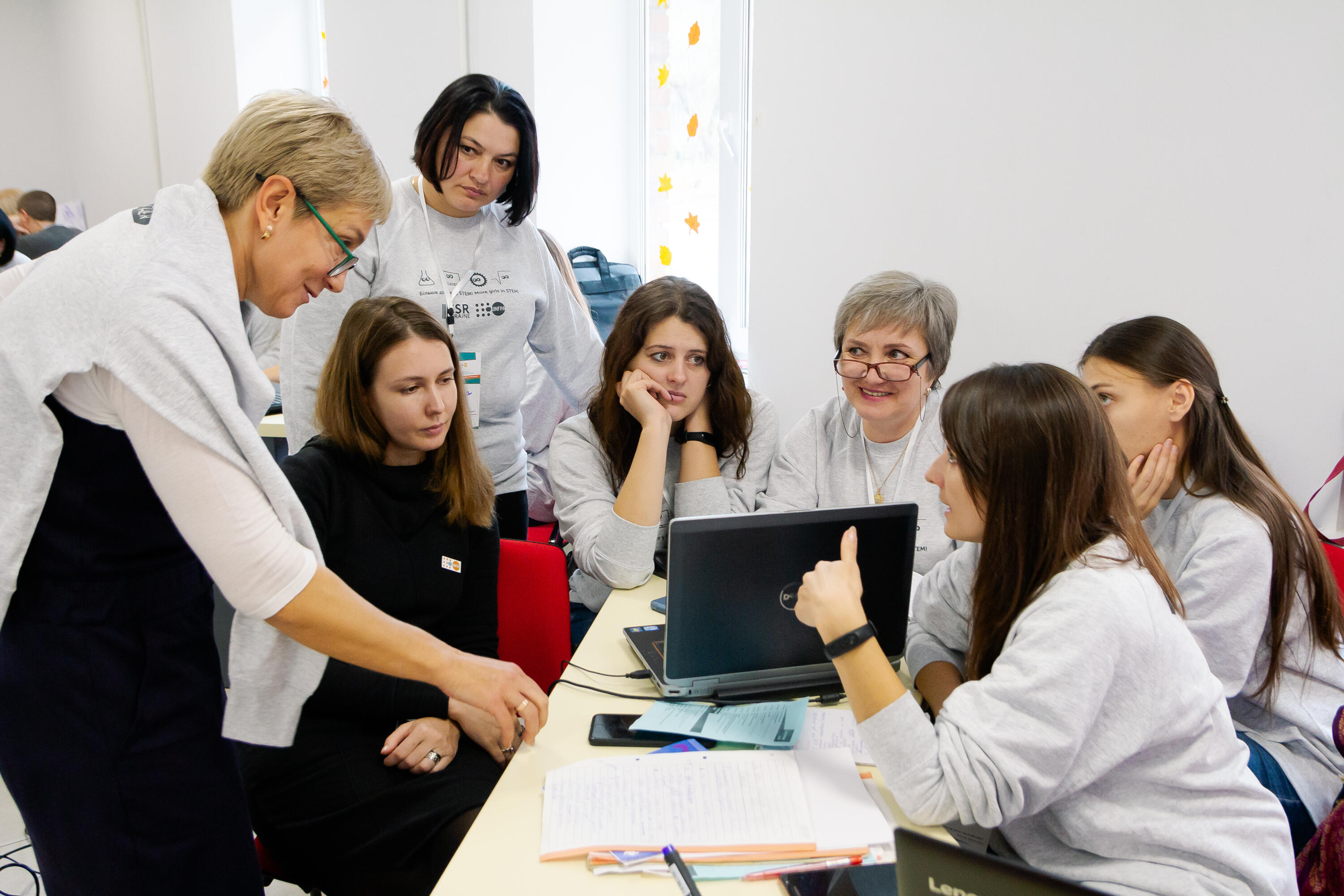From October 31 to November 2, Khmelnytskyi hosted a regional Hackathon for teachers “STEM lesson: methodological approaches and gender stereotypes”. During the final part of the event, 5 gender-sensitive projects were developed for schools to promote students’ interest in choosing STEM professions. Organizers: CSR Ukraine, CSR Development Center expert organization and United Nations Population Fund (UNFPA). Partner: Institute for Modernization of the Content within the Ministry of Education and Science.

Out of 192 applications received, 35 male and female teachers of STEM subjects from small villages and towns were selected in Khmelnytskyi, Ternopil, Rivne and Chernivtsi regions to participate in the Hackathon. The purpose of the event was to jointly develop projects and techniques that would help the teaching community screen STEM lessons for gender stereotypes and find innovative solutions to create favorable conditions to get the students interested in choosing STEM professions.
Maryna Saprykina, Head of CSR Development Center and initiator of the STEM Girls project said: “According to a recent sociological survey of young people, there are in general three times less girls intending to master the STEM profession of “engineer” than boys. In 2010/2011, the number of women seeking engineering education was almost 27% and today their share has dropped to 20%. We are here to improve the skills of the future, to share ideas and to involve girls in STEM”.
During the first day of the Hackathon, participants were split into teams; they talked about the importance of STEM, educational STEM trends in Ukraine and the world, studied project management, learned about the term “gender-sensitive approach” and methods of its implementation in schools.

According to Olga Popadynets, a state expert in non-discriminatory approach to education, gender sensitivity means the ability to identify, notice, recognize and respond to gender stereotypes, gender discrimination, to act in accordance with the principles of gender equality. “It is very important for the teachers themselves to be gender sensitive in their teaching activities, use feminitives and celebrate events such as October 14th according to the sense of a holiday, not stereotypes", Olga says. Also, the expert advises to designate teachers of both genders using the term "teaching community".
The next two days of the Hackathon were devoted to generating ideas for the development of gender sensitive projects using a design thinking session. It is a creative way of thinking focused on applying a people-centered approach focused on creating unconventional solutions and innovations. During the session, the participants identified target audiences, generated solutions and created projects to address specific issues existing in STEM education. During the mentoring sessions and checkpoints, the teachers received important recommendations to improve the proposed projects.

As a result of the knowledge gained and the help of mentors, the teachers presented 5 projects that will help involve more girls in STEM. According to the jury, the first place was awarded to Crazy Team with the project "STEM lesson: where to begin". The team’s product is a test allowing you to know at what stage you are right now and get tips on how to improve your skills and increase your knowledge in order to give effective STEM lessons. The #STEM demand team took the second place with the steMentors project. This is a video demonstrating the importance of girls’ interest in becoming mentors for other girls. The third place went to Super Team with the project “Agribusiness of the territorial community”, which convinces young people to stay in the rural area and develop the local agro-sector. According to the team members, the role of business in supporting schools is very important since it is part of their corporate social responsibility.
“Participation in the Hackathon has left unforgettable impressions and provided extremely useful experience. The completely new format required new approaches to problem solving and the design-thinking method helped us. The combination of teaching methods and right gender decisions broke our stereotypes, but experienced mentors and friendly organizers were nearby. We did it together. I am truly grateful to all the participants who were here during 3 days. I hope to continue the fruitful work", said Ludmyla Kozubai, a Hackathon member.
Upon completion of the Hackathon, teachers will work on the implementation and fulfillment of the developed projects in their schools.


